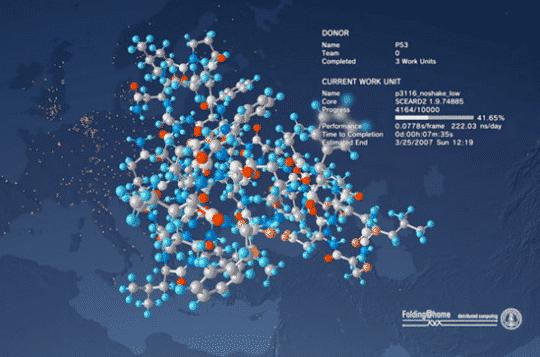Analyzing complex human body structures can be very cumbersome and usually requires a whole lot of computational power. Sony launched ‘Folding@home’, a venture which aimed to utilize the processing power of idle PlayStation 3 devices. The company has now announced that it is shelving the project.
Folding@home was an excellent project that Sony had launched in collaboration with Stanford University. The project allowed willing PlayStation 3 owners to relinquish their devices’ computing powers for use by the researchers at Stanford University.
The researchers commanded the power of these idle PS3 devices to examine a process called ‘protein folding.’ In this process, two-dimensional protein strands double up and then convert into three-dimensional molecules. These unique three-dimensional molecules then determine the biological functions of that protein.
If the folding process does not continue normally, it can lead to different diseases such as Parkinson’s. During the duration of five years for which the project ran, 15 million PS3 owners participated in the project, providing 100 million computational hours to the project.
According to Vijay Pande who headed the project at Stanford, “The PS3 system was a game changer for Folding@home, as it opened the door for new methods and new processors, eventually also leading to the use of GPUs.”
The project is being shelved now that it has significantly contributed to the researchers’ understanding of the ‘protein folding’ process. With the help of the analysis of the process, researchers have been able to devise effective strategies to tackle Alzheimer’s.
Source: Sony
Courtesy: CNET
[ttjad keyword=”i-doc-station”]


![Read more about the article [Video] Specially Tiled Dance Floor Automatically Illuminates](https://thetechjournal.com/wp-content/uploads/2012/10/Electricity-Produced-While-Dancng-With-Floor-Tiles.jpg)
